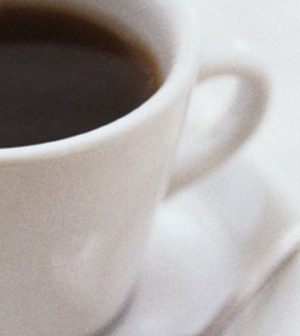- Could Your Grocery Store Meat Be Causing Recurring UTIs?
- Are You Making This Expensive Thermostat Error This Winter?
- Recognizing the Signs of Hypothyroidism
- 10 Strategies to Overcome Insomnia
- Could Artificial Sweeteners Be Aging the Brain Faster?
- Techniques for Soothing Your Nervous System
- Does the Water in Your House Smell Funny? Here’s Why
- Can a Daily Dose of Apple Cider Vinegar Actually Aid Weight Loss?
- 6 Health Beverages That Can Actually Spike Your Blood Sugar
- Treatment Options for Social Anxiety Disorder
Drink Coffee, Avoid Gallstones?

To the many ways in which coffee seems to confer unexpected health benefits, add a lowered risk of painful gallstones.
After tracking nearly 105,000 Danes for an average of eight years, researchers found that those who downed more than six cups per day of the world’s most popular beverage saw their gallstone risk drop by 23%.
“High coffee intake is associated with a lower risk of gallstone disease,” said study author Dr. A. Tybjaerg-Hansen. She’s chief physician of Rigshospitalet’s department of clinical biochemistry at Copenhagen University Hospital in Denmark.
That’s good news for Danes, 6% of whom drink six or more cups of coffee every day, she said.
But what about the average Dane, who knocks back just two cups a day? Or the average American or Brit who consumes between one to two cups daily? The study has good news for them, too. It turns out that even small amounts of coffee appeared to lower gallstone risk.
Compared to those who abstained from coffee, participants who drank just one cup of Joe a day saw the risk of gallstones dip by about 3%. Meanwhile, those who consumed three to six cups per day saw their risk slide by 17%.
The findings were published Sept. 5 in the Journal of Internal Medicine.
Gallstones are hard pebble-like pieces that can accumulate in the gallbladder, where they can sometimes block bile ducts. When that extremely painful condition develops, surgery to remove them is often the treatment of choice.
So what is it about coffee that seems to diminish risk? Tybjaerg-Hansen said that, for now, “we can only speculate on that.”
But she noted that because caffeine is excreted via the bile, it’s possible that it reduces the amount of cholesterol found in the bile. That could reduce gallstone risk, given that “the development of gallstones depends on a balance largely between cholesterol and bile acids,” Tybjaerg-Hansen explained.
Coffee also stimulates the muscle contractions that move contents though the gastrointestinal tract.
As to whether it’s the caffeine content that serves as coffee’s silver bullet, Tybjaerg-Hansen said, “yes, that is a possibility.” That raises the prospect that tea or chocolate might also lower gallstone risk.
But whatever’s behind coffee’s power, she believes that the team’s subsequent genetic analyses indicate that it’s coffee itself — rather than lifestyle factors common to coffee drinkers — that is at play.
Another expert is not so sure.
Dr. Anthony Bleyer is a professor of nephrology at Wake Forest School of Medicine in Winston-Salem, N.C. He was not involved in the Danish study, and was not previously aware of any link between coffee and gallstone risk.
“[But] it seems every week there is a new story about how coffee may or may not be associated with some benefit,” he cautioned. “Information on coffee is collected in many big databases. It is easy to do a comparison with just about any factor: osteoporosis, weight gain, weight loss, sleep, ulcers, cancer, mortality. You get the picture.”
And Bleyer acknowledged that many people will find studies like this interesting, given that coffee drinking is such a common habit. “But from a scientific standpoint, I am not a big fan,” he added.
“For one thing, consuming six cups of coffee is quite a lot,” he said, “and the [high level of] caffeine could have big effects on sleep, gastric reflux and on arrhythmias.”
But most importantly, said Bleyer, the things that drive people to drink a lot of coffee in the first place “may also cause other changes in diet.” And it could very well be those dietary changes, rather than coffee itself, that end up affecting gallstone risk.
His bottom line: don’t place too much stock in the power of coffee to reduce gallstone risk. For now, he said, “these studies show only an association, that is not causative.”
More information
For more on gallstone risk and causes, visit the U.S. National Institute of Diabetes and Digestive and Kidney Diseases.
Source: HealthDay
Copyright © 2026 HealthDay. All rights reserved.










